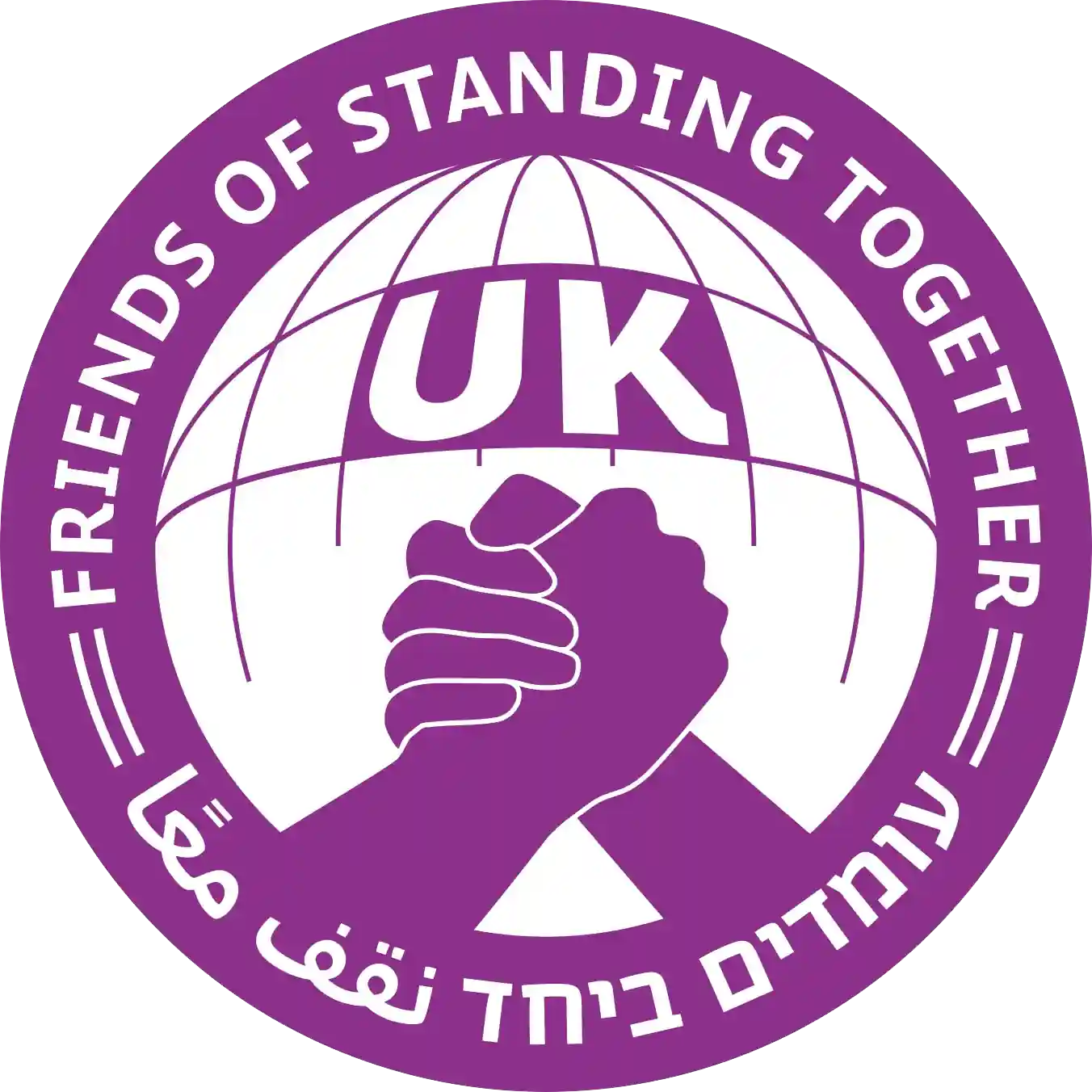Standing Together’s bus stop ad campaign brings the reality of the war on Gaza before the Israeli public
This article, by Rachel Fink, was originally published in Haaretz on 4 December. The original can be found online here.

Frustrated by the dearth of information Israelis are exposed to when it comes to the dire humanitarian situation in Gaza, one solidarity movement launched a campaign to mitigate public ignorance. Their solution was to hang up 300 posters in bus stations, reading, “We all must end this war – before this war ends us.”
Standing Together is a grassroots organization dedicated to creating a shared society for Israelis and Palestinians. Their membership has grown exponentially in the wake of October 7 and the ongoing military campaign in Gaza, with initiatives that include anti-war protests, supplying aid to Gazans and guarding humanitarian efforts designated for Palestinians.
Last week, the group set out to tackle a different challenge: Israelis’ lack of awareness when it comes to Palestinian suffering. “It’s one of the great ironies of this tragedy,” Standing Togther’s National Field Organizer, Uri Weltmann, points out. “When it comes to the death and destruction in Gaza, people abroad are much better informed than people who live just an hour away from where it is happening.”

In an effort to combat the problem, Standing Together created large posters depicting scenes the Israeli public is not typically used to seeing, including a particularly powerful photograph of Gazan children begging for food. The organization, with full permission from the company that sells the advertising space, then hung up 300 copies in public bus stations all over Tel Aviv and surrounding areas. “We chose bus stops intentionally,” Weltmann says. “A lot of times campaigns will purchase billboards on the highway. But we wanted something that was in the public sphere.”
“And we wanted it to be something people were forced to look in the eye,” he added.
When it comes to the question of why Israelis don’t really confront the humanitarian crisis in Gaza, Weltman holds the media largely, although not solely, responsible. “Mainstream news outlets here are duplicitous when it comes to not presenting a complete picture,” he asserts. “They make a conscious decision to omit facts, or to present them as scandalous or controversial.”
He offers as an example the recent comments by former Israeli defense minister Moshe Ya’alon who said that the military is currently engaged in ethnic cleansing in northern Gaza. “He was merely stating facts, facts that other right wing ministers admit are true,” Weltmann argues, “and the entire media decided to present it as this huge scandal.”
Which is not to say Israelis themselves are blameless. “Even if the media did show more of these images,” Weltmann concedes, “I’m not so naive as to think the public would spontaneously change their minds overnight. We know that war causes people to move to the right and that would happen no matter what they saw on the news.”
“But day in and day out,” Weltman says, “the media beats the drums of war. They are not just reflecting this shift towards nationalism. They are contributing to it.”
In terms of response to the campaign, Weltmann says that they’ve seen some calls among right-wing groups to confront the ad company who created the posters, but other than that no one has damaged the posters or tried to take them down. “As soon as we hung them up, we had lots of people reach out and tell us how important they think it is for these messages to get out there.”
In addition to the image of starving children, other posters feature rows of military graves and the SOS banner made by the three Israeli hostages mistakenly killed by the IDF in December. Written at the bottom of each poster is the phrase, “We must end the war before the war ends us.”
Weltmann explains the messaging: “We are really at a crossroads right now. We can either continue this endless cycle of Palestinian suffering and soldiers dying and economic despair, or we can end the war, help rebuild the Gaza Strip, and figure out a real, lasting diplomatic solution.”
“It’s a stark choice,” he says. “And it needs to be made right now.”

